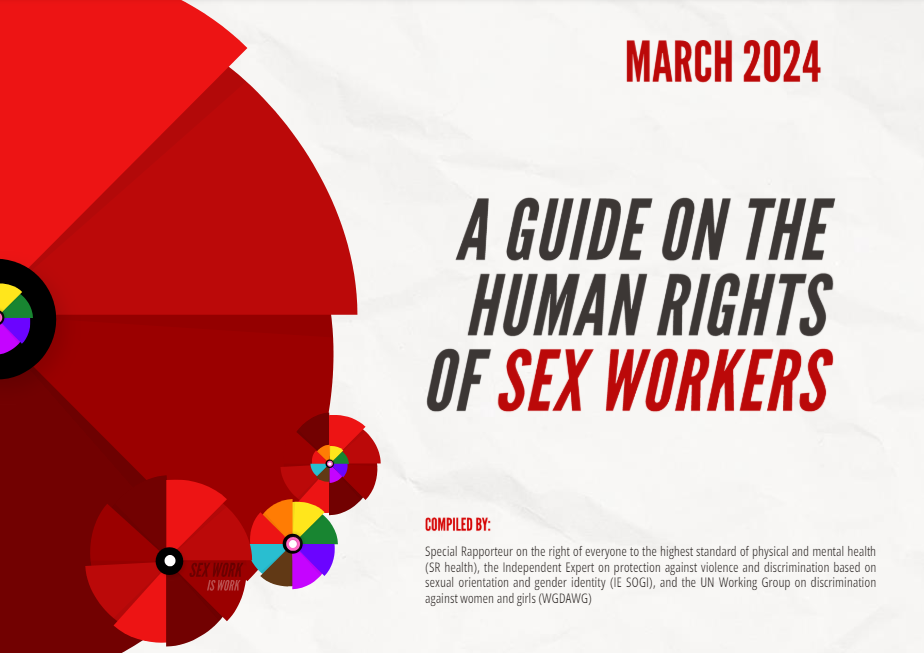United Nations: a guide on the human rights of sex workers

In March 2024, the Special Rapporteur on the right of everyone to the highest standard of physical and mental health (SR health), together with the Independent Expert on Protection against violence and discrimination based on sexual orientation and gender identity (IE SOGI), and the UN Working Group on discrimination against women and girls (WGDAWG) published a guide illustrating the human rights of sex workers.
With the aim of getting sex work recognized as work, sex workers have been advocating to use the right terminology. The report refers to sex workers as meaning “all adults who sell or exchange sex for money, goods or services (e.g., transport), regularly or occasionally.”
The criminalization of sex work is a human rights violation. Not only does criminalization have an impact on health, but it violates the human rights of sex workers. They have difficulties accessing health services and legal remedies.
Stigma, discrimination, and legal barriers prevent sex workers from accessing essential services and increase their vulnerability to abuse and violence. The CEDAW Committee also expressed concern about discrimination against sex workers and recommended measures to ensure their right to safe working conditions. The intersection of factors like sexual orientation, gender identity, and migration status exacerbates the risks and abuses they face.
Among the different legal approaches that have been proposed, criminalization of third parties involved in sex work, such as landlords, violates sex workers' rights to privacy, housing, and non-discrimination. As well, criminalizingclients has a negative impact on sex workers' safety, health, and access to justice.
Legalization of sex work, while intended to regulate the industry, still leaves many workers vulnerable to violence and exploitation; hence, it is not considered the best regulatory approach.
Full decriminalization of sex work is advocated as the most effective approach to protect the rights and well-being of all sex workers. This approach would entail the adoption of other measures with a comprehensive right-to-health approach, which includes human rights education, vulnerable groups’ participation and inclusion, and efforts to reduce stigma and discrimination.
In conclusion, the Special Rapporteur on the right of everyone to the highest standard of physical and mental health (SR health), the Independent Expert on protection against violence and discrimination based on sexual orientation and gender identity (IE SOGI), and the UN Working Group on discrimination against women and girls (WGDAWG) put forward some recommendations to states and stakeholders.
It is essential to review legislation to decriminalize sex work, with a comprehensive approach; implement preventive measures; uphold non-discrimination, and ensure access to healthcare and legal protection; prioritize health rights with policies respectful of gender identity and expression.
Moreover, law enforcement must receive training on protecting sex workers; states should stop detaining sex workers in “rehabilitation centers”, and sex workers' participation and engagement in policy making should be ensured. Finally, states must hold perpetrators of violence against sex workers accountable and provide reparations to victims.
To find out more, visit https://www.ohchr.org/en/documents/tools-and-resources/guide-human-rights-sex-workers

